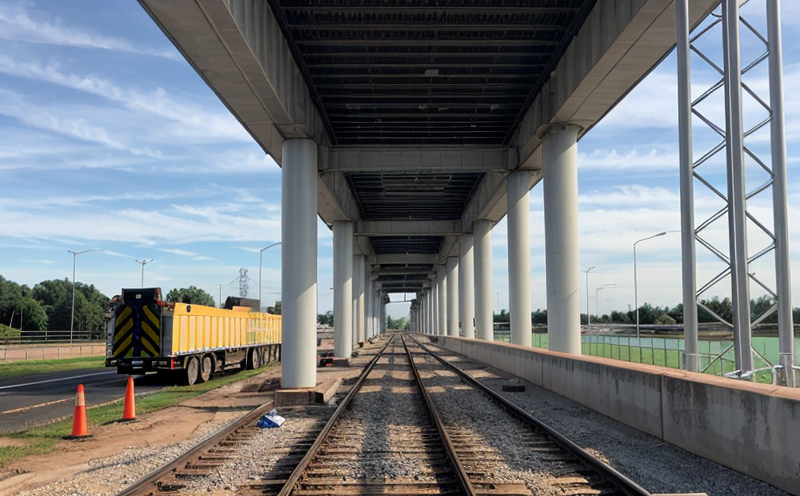EN 1994 Composite Steel and Concrete Structures Testing Validation Method Development Test
The European Standard EN 1994-1:2005 deals with the design of composite steel-concrete structures. This standard is crucial for ensuring structural integrity in a wide range of applications, including bridges, buildings, and other large-scale infrastructure projects.
Validation testing according to this standard involves developing and validating methods used to test these complex composite structures. The objective is to ensure that the methods accurately reflect real-world conditions and provide reliable data for design purposes.
The process of validation typically includes:
- Method Development: Establishing new testing methodologies or refining existing ones to better suit composite steel-concrete structures.
- Testing Protocols: Defining detailed procedures for conducting tests, including specimen preparation and instrumentation setup.
- Data Collection: Gathering comprehensive data sets from the tests conducted under controlled conditions.
- Analytical Validation: Comparing test results with theoretical predictions and existing standards to ensure accuracy and reliability.
This service is particularly important for ensuring compliance with international standards such as EN 1994-1:2005. It helps in identifying any discrepancies or gaps between current practices and the latest scientific understanding of composite steel-concrete structures.
For quality assurance, this process ensures that all testing methods are robust and capable of providing accurate results. This is critical for industries relying on these structures for safety and durability. Our team of experts specializes in this area and can provide tailored solutions to meet the specific needs of your project.
The testing validation involves rigorous specimen preparation, which includes:
- Selection of appropriate materials
- Preparation of composite panels
- Application of loading conditions
Our state-of-the-art facilities and experienced personnel ensure that every aspect of the testing process is conducted with precision. This includes using advanced instrumentation such as strain gauges, load cells, and displacement sensors to monitor critical parameters during testing.
The results from these tests are then analyzed in detail, ensuring they meet both EN 1994-1:2005 requirements and any additional local or international standards that may apply. Reporting is comprehensive and includes detailed descriptions of the test setup, procedures followed, data collected, and conclusions drawn.
This service not only meets regulatory requirements but also provides valuable insights into the behavior of composite steel-concrete structures under various loading conditions. This information can be used to improve design practices, enhance safety measures, and reduce potential risks associated with these structures.
Why It Matters
The importance of this service cannot be overstated, especially in today's world where infrastructure projects are becoming increasingly complex. Ensuring that the testing methods used for composite steel-concrete structures are accurate and reliable is paramount to public safety.
Avoiding discrepancies between theoretical models and real-world performance can lead to costly mistakes or even catastrophic failures. By validating our testing methods against both international standards like EN 1994-1:2005 and local regulations, we ensure that the structures being tested are safe and reliable.
Moreover, this service supports continuous improvement in design practices within the industry. Continuous validation ensures that new technologies and materials can be incorporated into existing testing protocols without compromising accuracy or reliability.
Eurolab Advantages
Our laboratory offers several unique advantages when it comes to providing EN 1994 composite steel-concrete structures testing validation method development tests:
- State-of-the-Art Facilities: Equipped with the latest technology and equipment, our labs provide precise and accurate test results.
- Experienced Personnel: Our team consists of highly trained professionals with extensive experience in composite steel-concrete structures testing.
- Comprehensive Reporting: Detailed reports are provided which include all relevant data and analysis, ensuring a thorough understanding of the test results.
We pride ourselves on delivering high-quality services that meet or exceed international standards. Our commitment to excellence ensures that every project receives the attention it deserves.
Quality and Reliability Assurance
At Eurolab, we take quality and reliability assurance very seriously. Here are some of the measures we implement:
- Regular Calibration: All instruments used in testing are regularly calibrated to ensure accuracy.
- Duplicate Testing: Whenever possible, duplicate tests are conducted to verify results and enhance reliability.
- Continuous Training: Our staff undergo continuous training to stay updated with the latest developments in composite steel-concrete structures testing.





